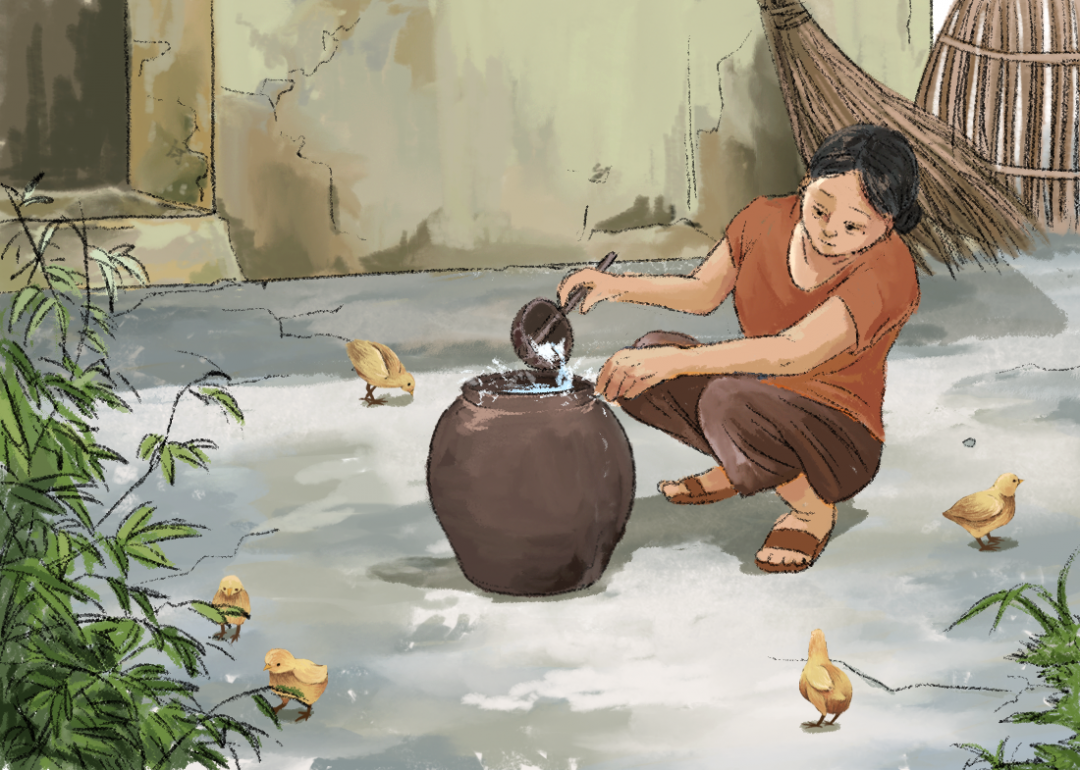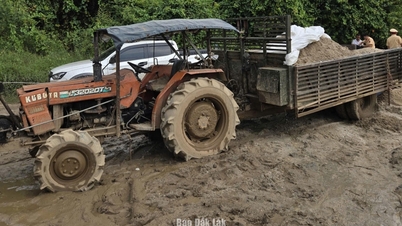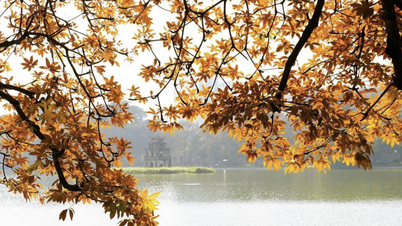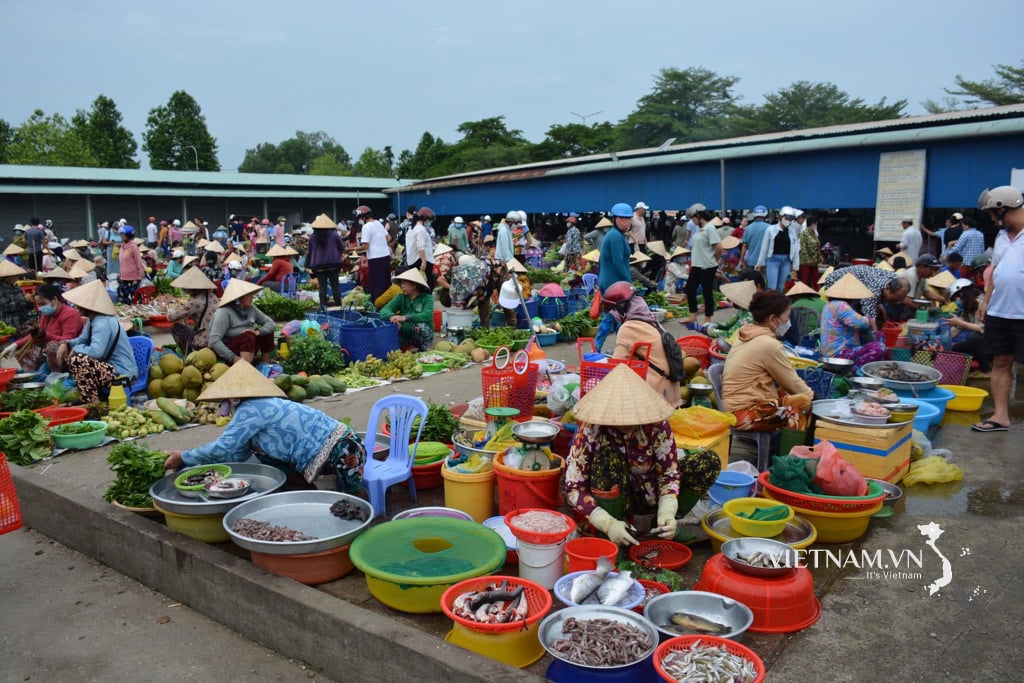The earthen jar, bearing the traces of time, containing pure white rice grains, and the old, worn-out rice measuring can, rusted in some places, were so simple, so nostalgic, so nostalgic. These simple objects, nestled under the peaceful countryside sky for many years, seemed so familiar that they were easily forgotten, but in fact, they were deeply entwined in my memory. In an instant, I returned to the vast memory, where my mother's earthen jars were.
Back then, in the corner of the house, my mother placed an old, dark brown rice jar, with a few small stones underneath. Every time she picked unripe guavas and custard apples, she would often put them in the rice jar. Sometimes there were a bunch of green bananas and a few newly ripe mangoes. My brothers and I would open them and close the lid, anxiously waiting for the soft, sweet ripe guavas and mangoes. The earthen jar silently retained the scent of our childhood. When the fruit was ripe, opening the lid of the rice jar would reveal a fragrant, heart-warming scent. It was as if inside the dusty earthen jar was a miracle, a yearning, and sparkling childhood joys. We gradually grew up from those fragrant herbs, and deeper still, it was our mother’s sweet, intact heart.
 |
| Illustration: Tra My |
In the past, Mother used earthenware jars to filter water. She put clean gravel halfway up the jar, and attached a bamboo tube with a pointed end to the bottom. Then she scooped a bucket of well water and poured it in, letting the water flow out of the bamboo tube in a clear stream. Mother boiled the filtered water and let it cool for the whole family to drink or poured it into a thermos for Father to make tea every morning.
I gently touched the water filter jar, always feeling cool and peaceful. For many months under the back porch, my mother's earthen jar was mottled with faint moss. At the foot of the stone pedestal, there were sparse fern branches. The sound of trickling water echoed in my heart, a deep, peaceful sound, every time I was at peace in my mother's kitchen. The sweet stream of water filtered from the earthen jar, since when has it infused me with the taste of pure love.
In my small countryside, jars to collect rainwater are often placed in front of the house. After running around in the fields, or when villagers come to the house to give me a bunch of vegetables or fish, they will scoop up ladles of cool water to wash their hands and feet. Occasionally, I can see thin rays of sunlight, leaning through the eaves, shining into the jar. Sometimes someone forgets to cover the jar, letting guava or frangipani petals flutter in the wind. At night, the moon shines brightly over the countryside. Looking down at the jar of water, I suddenly feel my heart soften, because of the floating, light golden rays, as if blending into a folk song. Because of all that simplicity, I cannot bear to forget the gentle earthen jar, containing all four seasons, in front of the house.
Mother also used earthenware jars to pickle vegetables and fish sauce. The inside of the earthenware jars seemed to be coated with a layer of enamel over time, preserving the original taste of the vegetables and fish sauce, regardless of the weather outside, whether it was sunny or rainy. The jars bore the imprint of mother's hard-working hands. In a small, humble corner, with shadows cast over the years, they silently kept a dear old land. The jars retained the image of mother, grandmother, and many women from the countryside who had a hard life, sending their dreams to the kitchen and garden.
My grandmother has passed away. My mother's hair has turned the color of the mulberry sea. I returned home and was startled to realize that my childhood was far away. Now, modern water tanks and filters are available, and the kitchen in the countryside is gradually losing the jars of fish sauce and jars of eggplant. The old earthenware jar is gradually fading into the past, but I can still hear the laughter when the fruit in the jar is ripe, and the sound of water flowing from the back porch...
Source: https://baodaklak.vn/van-hoa-du-lich-van-hoc-nghe-thuat/van-hoc-nghe-thuat/202508/chum-dat-ngay-cu-0c20363/






![[Photo] Prime Minister Pham Minh Chinh chairs the first meeting of the Central Steering Committee on housing policy and real estate market](https://vphoto.vietnam.vn/thumb/1200x675/vietnam/resource/IMAGE/2025/9/22/c0f42b88c6284975b4bcfcf5b17656e7)






























![[Photo] General Secretary To Lam presents the First Class Labor Medal to the Vietnam National Energy and Industry Group](https://vphoto.vietnam.vn/thumb/1200x675/vietnam/resource/IMAGE/2025/9/21/0ad2d50e1c274a55a3736500c5f262e5)
































































Comment (0)